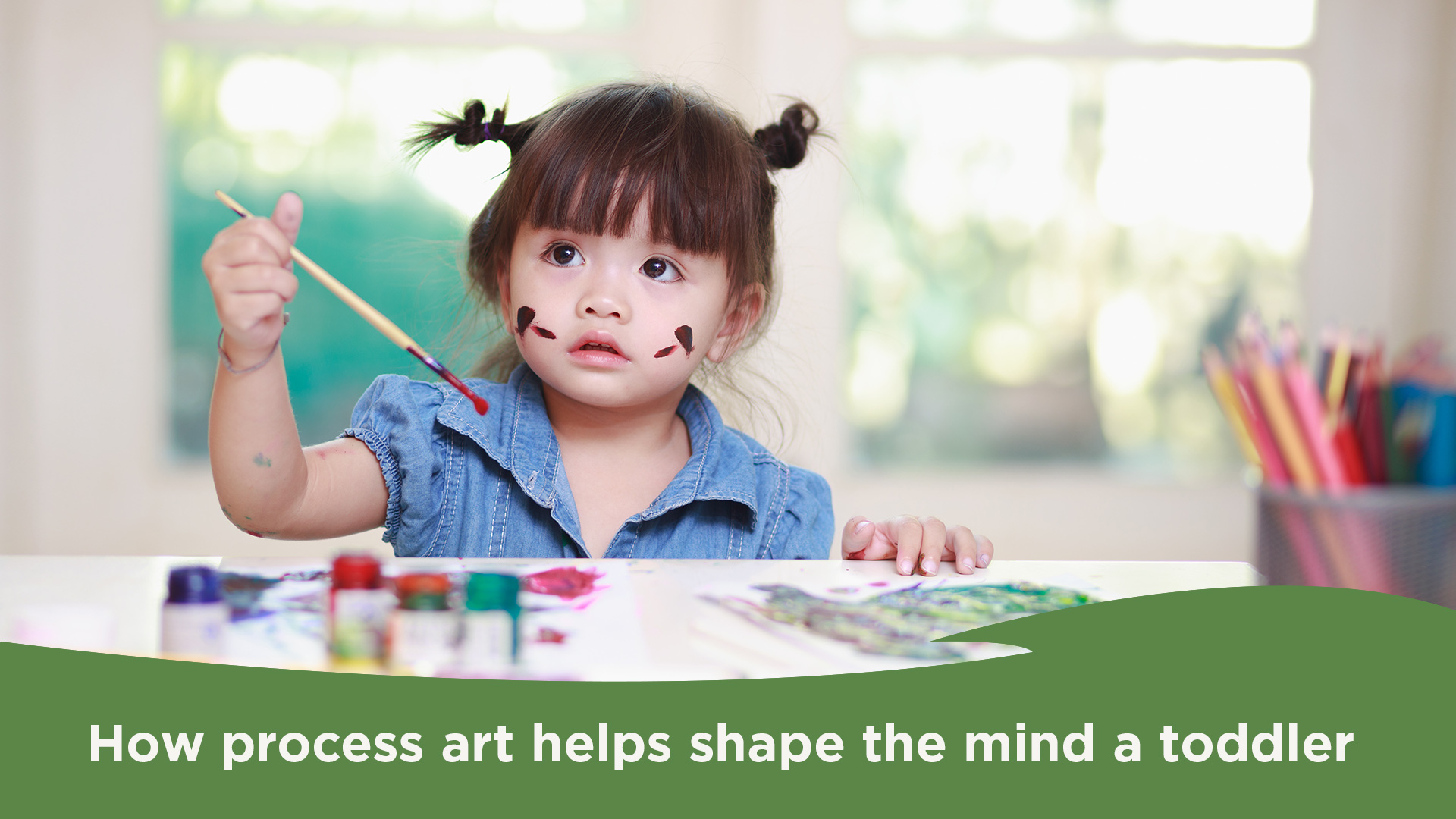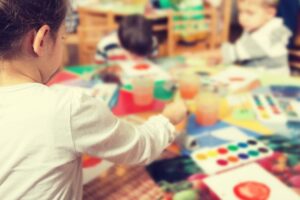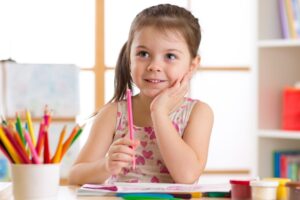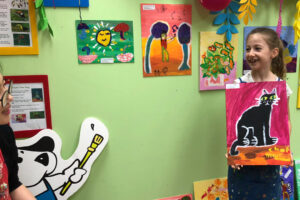How Process Art Helps Shape The Mind A Toddler
![]()
- Posted by abrakadoodle.com.sg
- Categories Process art
- Date 18 June 2021

There is plenty of misunderstanding about introducing art when your child is still a toddler. People believe at that age, she can’t even hold a paint brush or so they say. Many also think it is a waste of time and gets really messy.
While some others believe that you need to be a born artist or have some such misconceptions about art. But what we tend to forget or overlook is the fact that we are all born with an innate desire to express ourselves, and that includes a toddler.
Process focused art is the best way to help the mind stay engaged with life and the world around you. Improve creative thinking and nurture early learning
Table of Contents
ToggleProcess art activities relieve stress
An average individual has roughly 60,000 thoughts running through his brain per day, and 90% of them are exactly the same, day in and day out! Process art steers the mind away from these churn of useless thoughts, giving the brain a break and shifts you from the rut of usual thoughts.
However, when you are immersed in a creative process, you quickly move into the “zone” as it is usually called or be in a state of “flow.” Similarly when toddlers indulge in painting or drawing, they are totally involved with what they are doing.
Like you, they too become more relaxed, display lower stress levels, feel calm and stay mentally agile and alert. In short, they are happier and healthier, fully charged to play more and learn through process focused art.
According to Leonardo da Vinci, “Painting embraces all the ten functions of the eye; darkness, light, body and colour, shape and location, distance and closeness, motion and rest.” Process focused art trains toddlers to focus on details and pay more attention to what they see and feel in their own minds.
Support child relationships
When you actively think of ways to improve creative thinking, you give toddlers and young children an opportunity to express their ideas and build on their observational skills. They also gain confidence, increase the feelings of self-worth and develop their creativity.
Process focused art creates a very different kind of atmosphere, which every toddler will appreciate and respond to. When done in a group of toddlers and young children, you will discover that they talk and support each other without inhibition. Take pride in sharing their skills. Each toddler develops a sense of belonging, achievement and boost their confidence levels.
Process art projects help children to bring down barriers to drop and helps keep the mind open to stimulus and learning. Young children talk freely and will also discuss personal issues they might be facing with you. These interactions strengthen and help develop relationships.
Among the many things, process focused art supports artistic skills and demonstrates that these are highly valued by you and later when in school, applauded by your child’s teacher.
Don’t run out of art material
Make sure art material is always available to your child when at home. In fact, make it a point to take your child out to the supermarket when buying art material. Once you are back home, sit down and start drawing with your child. You needn’t be an artist yourself. Just let it go, because when you are drawing together, you nurture early learning. You are also making time to bond and those artistic skills will come on their own.You may also login to youtube and type in the search field “how to draw”. You will discover plenty of preschool art ideas to get you started. While you begin to learn to draw and pick up some handy tips, it will also help the child understand that it is OK for the drawings to look different and not really all that artistic. The idea is to have fun developing creative thinking skills more than anything else.
Always discuss what your child draws
Toddlers and young children love to talk about what they draw. Besides, it is important that your child is able to discuss in a non-judgmental way. Make statements such as, “it’s great, can you tell me more about it?” will help your child open up.Conversations about what we draw, allows the child to set the creative agenda and discuss what is important to her and why. You avoid misunderstanding what she drew, as well as prevent upsetting your child. You also find new ways to improve creative thinking. There are no mistakes in process focused art, everything is allowed and appreciated.
Preschool art also enables you to ask questions that encourage your child to consider what they have drawn and explain the characters in more detail. “Tell me more about this guy. What is he like, Where does he live.” Such questions enable your child to use her imagination, search for words to express what she is thinking. As a matter of fact, this interaction will help develop the world she has created through her art.
Make all the opportunities that come your way to talk with your child. Connect with her on a personal level. Sharing ideas and drawing together nurtures your relationship.
Experiment & innovate
While you practice process focused art.your child will grow to love to explore and experiment. The more she is involved in doing this, the better she gets in her thinking abilities and innovating something that is totally new. Just spread the blank sheet of paper out in front of her, dump a lot of paint on it and let her have a ball mixing the colours.While this might call for a little effort on your part, it will pay back manifold. The more children have the opportunity to explore and experiment, the more will be the development in their skills and also the fact that you are instilling the habit of expressing their thinking freely.
Visit museums & galleries
There are many ways to improve creative thinking, and one most fruitful one is to visit an art gallery.There is always some exhibition or the other which is open, and if there aren’t any at this point in time, visit a museum instead.
These are child friendly spaces and there is so much for a child to see, absorb and do. Such visits will also help develop in her an understanding and appreciation of aesthetics. Expose her to different artistic traditions and enable your child to find her own artistic voice and style.
Value of art in everyday things
When reading bedtime stories to your child, draw her attention to the illustrations and talk about the skill that would have gone into creating and producing it.Have fun. Art is playful and messy. Sharing the enjoyment of messing about and painting with your child will inspire her to engage meaningfully with the process focused art.
Art brings people together, initiates conversation, stirs positive feelings, and conveys what may not be expressed in words.
About Abrakadoodle
Process art learning experiences inspire children to think differently, be creative, and devise new ways to learn about interesting things found in the real world. Changing the way children discover and imagine. Igniting their minds to think, play and learn like never before. www.abrakadoodle.com.sgYou may also like

Without Art Education There Is No Education


